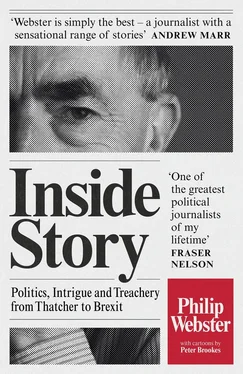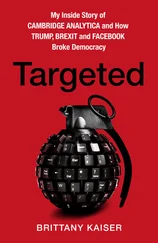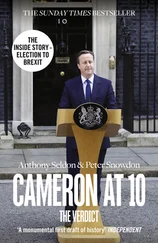In an e-mail to Cameron, Gove warned that if he granted a referendum it would not bring peace to the party and that he would continue to be ‘harried’, and that it was dangerous to commit to a plebiscite before it was known what reforms Europe would offer up. Gove, at this stage, did not explicitly say to Cameron that he would campaign against him, but the PM could have been in no doubt about his deep concerns.
As the negotiations with Brussels reached their climax in the winter of 2015, Cameron several times asked Gove’s friends – including Osborne, Ed Vaizey (culture minister) and Nick Boles – whether Gove would be ‘all right’ when the time came. But it was clear from a number of newspaper stories since the party conference in October that Gove was likely to be in the opposite camp and that he was ‘conflicted’ about opposing his friend the prime minister.
As Cameron prepared to announce the referendum date on Saturday, 20 February, Ed Llewellyn (his chief of staff) approached Gove and told him Downing Street needed to know that he would be on side in view of the extensive media coverage the coming weekend. Gove told him that he could not be and would campaign in line with his long-stated beliefs. It was a big blow to Cameron.
Cameron himself confirmed the news publicly: ‘Michael is one of my oldest and closest friends but he has wanted to get Britain to pull out of the EU for about thirty years,’ he said. ‘So of course I am disappointed that we are not going to be on the same side as we have this vital argument about our country’s future. I am disappointed but I am not surprised.’
Gove said:
It pains me to have to disagree with the Prime Minister on any issue. My instinct is to support him through good times and bad.
But I cannot duck the choice which the Prime Minister has given every one of us. In a few months’ time we will all have the opportunity to decide whether Britain should stay in the European Union or leave. I believe our country would be freer, fairer and better off outside the EU. And if, at this moment of decision, I didn’t say what I believe I would not be true to my convictions or my country.
Johnson and Gove had dined together and agreed that a late initiative by Oliver Letwin, the Cabinet Office minister and Cameron’s close adviser, to change the Act authorizing the UK’s accession to the EU to bolster the UK’s parliamentary sovereignty was not sufficient to assuage their doubts, but Gove was as much in the dark as Cameron about what Johnson would decide. He only learnt that he was to be in the Brexit camp on the Saturday afternoon before Johnson made his announcement on Sunday, 21 February.
After winning what most considered an underwhelming renegotiation package, Cameron had bitten the bullet and announced 23 June as the day of decision. He had gone for the fastest-possible timetable, rejecting the advice of his strategist, Lynton Crosby, who warned that it could turn into a protest vote.
Cameron had hoped to persuade Johnson to come on side, and at a forty-minute meeting in Number 10 the previous week, he offered him various posts in the coming reshuffle. The former mayor was undecided until the very last minute. When he did declare, Cameron and others accused him of doing so for opportunistic reasons of self-advancement. There can be little doubt that he did it because he saw it as a way eventually of taking Cameron’s job.
I learn there were few tears in Downing Street when Gove plunged the knife into Johnson, although Cameron believed that Gove’s behaviour would win sympathy in the party for Johnson. Gove earned the displeasure of Cameron and close friends for campaigning with vigour for Brexit. They had hoped and believed he would play a low-key role. Gove’s position was known but Cameron had not expected his erstwhile friend – the atmosphere between them now as I write this is glacial, according to an insider – to campaign so strongly and, he felt, personally against him.
As was widely reported, Cameron’s wife, Samantha, had a stand-up row with Gove’s wife, Sarah Vine, at a friend’s party, accusing Gove of betrayal and abandoning her husband’s premiership. Other friendships and family relationships across the country were similarly strained as the campaign developed into mud-slinging and bitterness. Gove told me after he had pulled out of the contest:
I did not relish being on the opposite side to David but it became clear to me during the course of the campaign that if it was going to be conducted in a professional way, I had to speak up for my beliefs. Having made the decision, I had to argue in the way I did. But I tried to make the case without personal attacks and on the basis of principle.
The warnings from Osborne and Gove were acutely prophetic but back in 2013, Cameron, the gambler, had had enough of the Tory Right, he was worried about UKIP and he thought that when the time came he could negotiate a good deal out of Brussels and win. Cameron’s aides and supporters believed that he had no choice and that the time to settle the issue had come. One told me after 23 June: ‘There really was little alternative. The political pressure was unstoppable.’
But it has to be said that Cameron called the referendum for party political reasons and not for the national interest. There was no clamour for it in the country and the decision was to blow up in his face and put the country on a deeply uncertain path.
I believe the referendum was a mistake. Cameron could not be sure of winning, and he lost. Thatcher once said that referendums ‘sacrificed parliamentary sovereignty to political expediency’ and most leaders hate them because voters do not necessarily use them to decide the issue in question but to make a protest. In this referendum, ‘Leave’ voters did so for all kinds of reasons. ‘Remain’ voters just voted to remain.
By the time he capitulated to the Right, Cameron had often been called the ‘essay-crisis’ PM, the leader who only turned his attention to problems at the last moment and then rushed through an answer to them. The referendum pledge helped him see off his own right wing and the threat of UKIP, and may well have helped him win outright in 2015. But the country was landed with a critical decision on its future and millions felt ill-equipped to make it.
Cameron’s second-biggest error was overconfidence. As recently as December 2015 he told his European colleagues that he was a winner and they should not worry too much. His serendipity may have led to him accepting a deal from Brussels that was not good enough, and once the campaign was under way he did not use all the weapons available to him, as I will explain.
In March 2016, Cameron’s campaign was abruptly thrown off course by an event that he should have anticipated but did not. Two days after the 2016 Budget, Iain Duncan Smith, the work and pensions secretary, resigned. The immediate issue was cuts to disability benefits. The reason was George Osborne.
Osborne and the man in charge of the biggest government budget did not get on. IDS had row after row with the chancellor over his repeated attempts to cut benefits for working people as his main weapon to tackle the deficit. I understand the resignation had been brewing since January 2014, when Osborne announced he would make a further £12 billion of cuts in welfare in the next parliament. He had not discussed the plan with IDS. ‘It was a bounce,’ he has since told friends.
We know that Osborne did not have a high opinion of his colleague. As Matthew D’Ancona told us in his book In It Togethe r : ‘“He opposes every cut,” Osborne complained to one friend.’ Nor was he confident that IDS had the IQ. ‘You see Iain giving presentations,’ he confided in allies, ‘and realize he’s just not clever enough.’ IDS, I learnt, has no higher opinion of the ex-chancellor. A friend said: ‘Iain regards George as arrogant. He is not collegiate. He lands the government in one shambles after another by his refusal to consult. He fancies himself as the master strategist. His record does not justify such pride.’ Another friend said: ‘Iain does not like George or his cronies. He encroaches on everyone’s pitch. He is mad for a headline – so in the 2016 Budget we got his great announcement that all schools would have to become academies. Then six weeks later poor old Nicky Morgan [former education secretary] had to retreat. It is one omnishambles after another.’
Читать дальше











